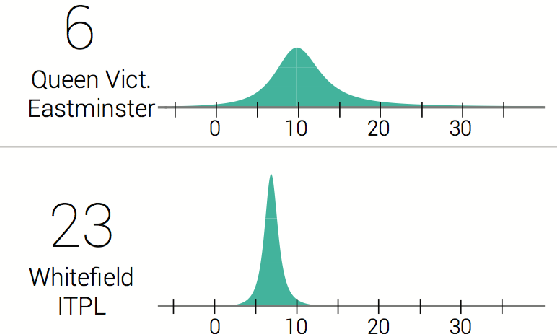Why Evaluating Uncertainty Visualization is Error Prone
Jessica Hullman
BELIV 2016

Abstract
Evaluating a visualization that depicts uncertainty is fraught with challenges due to the complex psychology of uncertainty. However, relatively little attention is paid to selecting and motivating a chosen interpretation or elicitation method for subjective probabilities in the uncertainty visualization literature. I survey existing evaluation work in uncertainty visualization, and examine how research in judgment and decision-making that focuses on subjective uncertainty elicitation sheds light on common approaches in visualization. I propose suggestions for practice aimed at reducing errors and noise related to how ground truth is defined for subjective probability estimates, the choice of an elicitation method, and the strategies used by subjects making judgments with an uncertainty visualization.
